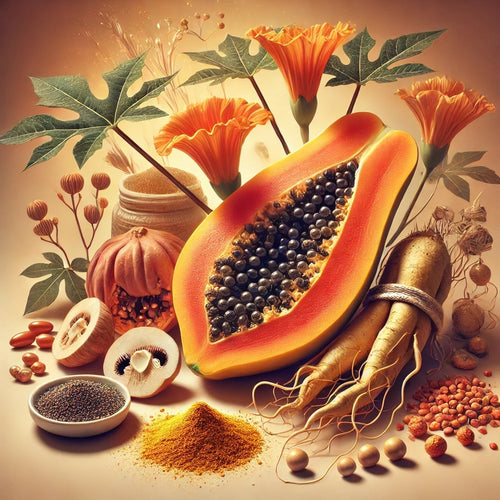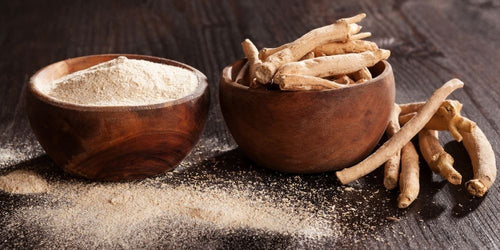Picture this. You wake up and decide that today’s the day to start that project or blitz through your to-do list. But as soon as you sit at your desk, you can’t focus. Your brain gets bombarded with distractions and intrusive thoughts that have nothing to do with the task, and you procrastinate out of frustration. You don’t achieve what you set out to achieve, and the cycle continues.
For the millions of people living with ADHD in the UK, this is a common experience. ADHD (Attention-Deficit/Hyperactivity Disorder) is a neurodevelopmental condition that typically begins in childhood and can continue into adulthood. According to the NHS, ADHD affects about 3-5% of children and 2% of adults; many will exhibit persistent patterns of inattention, hyperactivity, and impulsivity that can interfere with their daily functioning and quality of life.
While conventional ADHD treatments — such as medication or therapy — effectively manage symptoms, many people are keen to take a more holistic route and find natural ways to improve their concentration, focus and overall mood. This is where adaptogens come in.
But what are ‘adaptogens’? How might they help people with ADHD? And how can I easily incorporate high-quality adaptogens into my daily diet?
Adaptogens for an all-natural boost
Adaptogens are plants and mushrooms that help the body and mind balance stressors and achieve homeostasis.
Homeostasis refers to the body’s ability to remain in a stable internal environment despite external changes. This progress regulates a bunch of physiological variables — such as body temperature and blood sugar levels — to ensure the body is functioning in its optimal state.
Adaptogens target various systems of the body, helping regulate the production and balance of stress hormones — such as cortisol — and may reduce the negative impact of chronic stress, anxiety and fatigue.
So, it’s no wonder why humans have used adaptogens for thousands of years!
How adaptogens can help manage ADHD symptoms
It’s important to note that adaptogens should not be seen as the sole replacement for ADHD medications prescribed by healthcare professionals. However, some individuals may find that incorporating adaptogens into their daily diets could help improve their symptoms.
Those with ADHD have been shown to be deficient in dopamine and norepinephrine. Rhodiola Rosea is a powerful adaptogen which has been studied on those with ADHD for its effect on brain functioning and shown to increase levels of the neurotransmitters serotonin, dopamine and norepinephrine and increase alertness. It’s also been shown to support attention, memory, and mental fatigue. Another well-known nootropic adaptogen is Lion’s Mane, known as the ‘brain mushroom’ it’s been shown to increase the growth of new neurons in our brain, and studies have shown it can improve our working memory, concentration and attention.
Adaptogens have also been traditionally used to reduce anxiety and causes of depression, such as inflammation. So, if someone with ADHD regularly struggles with emotional dysregulation and mood swings, adaptogens can help individuals achieve balance. This was highlighted in one observational study. When looking at the effects of red ginseng on eighteen children diagnosed with ADHD, they found that a daily dose of 1,000mg for eight weeks reduced symptoms - including decreased anxiety and improved social function.
In fact, one pilot study found that children with ADHD who took Ginkgo biloba - an ancient Chinese plant - for five weeks experienced an improvement in their symptoms. Another placebo-controlled study also found that ashwagandha significantly reduced stress levels in individuals and improved the overall quality of life.
Incorporate adaptogens into your daily diet
There’s no denying the potential benefits of adaptogens for those with ADHD. But what if we told you there was an easy (and delicious!) way to incorporate them into your daily wellness routine? Enter: adaptogenic coffee.
The UK is an avid nation of coffee drinkers. On average, we drink around 95 million cups of coffee per day — not only for its delicious taste but also for the benefits it may bring. The human response to caffeine can vary depending on the person. But it’s believed that low to moderate doses can increase our alertness and attention by blocking our adenosine receptors which make us drowsy, giving us a well-needed mental lift. So, it’s no surprise that people with ADHD may use coffee as a way to improve their symptoms. In fact, research shows that adolescents with ADHD diagnosis are twice as likely to consume caffeinated drinks (coffee and/or other caffeinated drinks) than those without ADHD. Along with its benefits, caffeine can bring about adverse effects. For example, if you’re sensitive to caffeine, drink a lot or are more susceptible to increased feelings of anxiety and stress, coffee may exacerbate these symptoms due to its ability to increase cortisol, our stress hormone.
Another potential drawback of caffeine is the "spike and crash" phenomenon. This typically occurs when someone drinks a cup of coffee and then feels groggier than before. Caffeine, when consumed on its own, is absorbed quickly and takes around 30-60 minutes to reach peak levels in the blood. What follows is the need for another coffee to reach the same peak, but it can make the side effects feel more intense.
But unlike caffeine (on its own), adaptogens blended with coffee don’t result in a crash and can give us sustained energy instead. For us at London Nootropics, adaptogenic coffee allows us to enjoy the benefits of caffeine in our day whilst staying balanced and not having a cortisol spike. We get regular feedback from customers on how much they’ve reduced the amount of coffee they consume daily!
Are Rhodiola and Lion’s Mane Good for ADHD?
Rhodiola Rosea and Lion’s Mane mushroom, are known to be rich in active compounds shown to increase mental clarity and cognitive function. Whilst Lion’s Mane is known to help support memory, focus and concentration, Rhodiola is a powerful adaptogen known for its effect on stress levels and brain functioning.
These effects might benefit individuals with ADHD who often struggle with brain fog and forgetfulness. One double-blind, placebo-controlled study highlighted this. When looking at the effects of Lion’s Mane on 30 adults with mild cognitive impairment, they found it improved attention and cognitive function.
Every sachet of our Flow adaptogenic coffee blend contains +250mg Hifas da Terra Lion’s Mane with 45% beta-glucans from fruiting bodies and +83mg of a branded Rhodiola extract called RhodioLife® (grown from the Siberian-Altai) which is standardised to 3% Rosavins and 1% Salidroside.
“I have ADHD and CPTSD. I was sceptical, but man, this ‘Flow’ is the best thing that focuses me and allows me to confidently access my working rate!” — Nikki S.
Ashwagandha and ADHD: Reduce anxiety and depression
Many people with ADHD feel their emotions deeply and intensely. In fact, researchers estimate that around 70% of adults with ADHD experience difficulties with emotional regulation, making them more likely to express intense feelings publicly or in the wrong context. In short, life can really feel like a rollercoaster ride for someone with ADHD.
One powerful adaptogen called Ashwagandha, botanically known as Withania somnifera, can help us achieve balance. It’s a medicinal herb that’s been used for over 2,500 years, and countless studies have suggested its impact on human health — including its potential to work on our adrenals to help balance our cortisol. For example, one study found that the herb exhibits anti-stress and anti-anxiety in humans.
We use a branded Ashwagandha extract called KSM-66® with 5% Withanolides in our Zen blend, which is the highest concentration full-spectrum root extract available today. It's been proven to have a high bioavailability, helping to alleviate anxiety, enhance memory and help the body adapt to physical & mental stressors.
Power up with Cordyceps and Siberian Ginseng
While adaptogens and coffee can ease anxiety symptoms for individuals with ADHD, they can also improve stamina and give us a well-needed energy lift.
Cordyceps mushrooms are a great example of this. This fungus is known for supporting energy and stamina by increasing our aerobic capacity, oxygen flow around our body and boosting ATP, our energy molecule.
In fact, Cordyceps was linked to enhancing physical stamina during the Chinese National Games in 1993. A group of female athletes broke nine world records and accredited Cordyceps for their success. Soon after, adaptogens were put on the map as one of the best medicinal mushrooms for physical endurance.
Siberian ginseng pairs perfectly with Cordyceps. This mighty adaptogen has been used for thousands of years in the East, heralded for its ability to help us adapt to physical and mental stressors by increasing blood flow around the body — ideal for when you’re feeling tired.
Every sachet of our Mojo adaptogenic coffee blend contains 305mg of Hifas da Terra Cordyceps, standardised to 5% Cordycepin & 25% beta-glucan fruiting bodies, and 102mg of Siberian Ginseng (with 0.8% Eleutherosides) extract.
Take control of your ADHD symptoms with London Nootropics
At London Nootropics, we’re on a mission to make it easy for people to deliciously incorporate premium adaptogens rich in active compounds into their daily diet.
All our blends contain 80-110mg of caffeine, which is about the same as one regular cup of coffee, and include an effective amount of the highest-quality adaptogen extracts to help you find your flow and elevate your day. They all come in single-serve sachets, perfect for when you’re on the go and need an adaptogenic boost to your day.
Take back control of your ADHD symptoms and find your flow with our three adaptogenic coffee blends. Have a Mojo with Cordyceps and Siberian Ginseng when you need a physical boost, endurance and immunity support. To find emotional balance and attain a state of tranquillity, enjoy our Zen blend, which combines Ashwagandha and L-theanine. And if you’re looking for a coffee to help clear brain fog, improve cognitive performance and boost your productivity levels, try our Flow blend with Lion’s Mane and Rhodiola - our favourite blend, designed for mental clarity and focus.






















